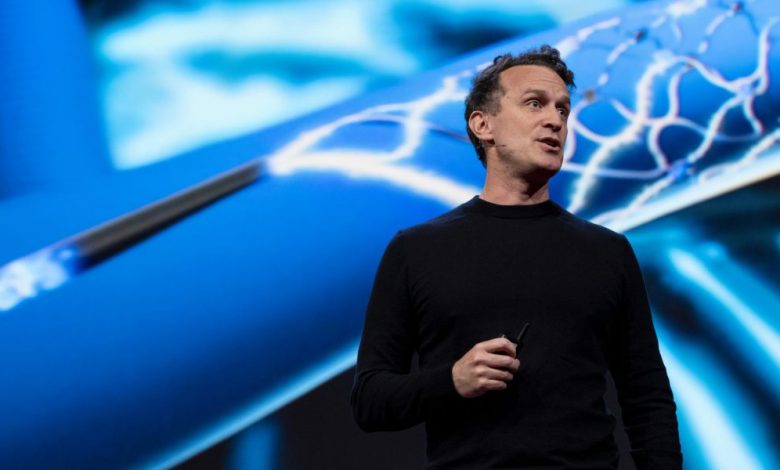Jeff Bezos and Bill Gates invest in Synchron while Musk’s Neuralink faces federal investigation

As Elon Musk’s frustration with his brain tech startup Neuralink mounts, Jeff Bezos and Bill Gates are betting on one of his main competitors, Synchron.
On Thursday, Synchron announced the closing of a $75 million funding round led by ARCH Venture Partners. Investors include Bezos Expeditions and Gates Frontier, which handle personal investments for Amazon founder Bezos and Microsoft co-founder Gates, respectively.
Synchron is focused on restoring some helpful functions to paralyzed patients, who can use their Synchron Switch, a brain-computer interface (BCI), to move a computer cursor on a screen with just their thoughts. In a minimally invasive procedure, the BCI is implanted via the jugular vein into the blood vessel on the surface of the motor cortex of the brain. Other companies, including Neuralink, use more invasive techniques that involve penetrating the skull.
“We have the ability to deliver world-class commercial BCI. The paralysis problem is much bigger than people realize. 100 million people worldwide have upper extremity disabilities,” wrote Tom Oxley, Synchron’s founder and CEO, in a statement Thursday. “We are very excited to be working with ARCH and this world-class consortium to bring this technology to the people who need it.”
At Neuralink, things aren’t running as smoothly. The company is under federal investigation for possible violations of animal welfare laws after employees responded to what they say was rushed testing that caused unnecessary suffering and deaths, Reuters reported last week. Musk has reportedly told Neuralink staff to imagine they’ve strapped bombs to their heads to speed up the startup’s progress, but staff have advocated more deliberate, traditional testing methods.
This week, the Physicians Committee for Responsible Medicine, a major medical ethics advocacy group, asked the Food and Drug Administration (FDA) to hold Neuralink accountable for violating biological testing protocols and disqualifying data obtained from animal testing. It also asked the agency to ban further animal testing of Neuralink. FDA sanctions could force the company to start the rigorous approval process all over again.
Musk is known for his demanding work expectations. Last month on Twitter, he urged employees to work with an “insane sense of urgency” after laying off about half the workforce following his $44 billion acquisition.
Musk is likely aware of Synchron’s advances. In August 2020, Synchron received “breakthrough” designation from the FDA, allowing for a relatively streamlined approval process, and has already implanted its BCI in several patients as part of a proof of concept study.
Of course, Neuralink is also making progress. Musk said last month that FDA talks were going well enough for Neuralink to target its first human trials within the next six months. Speaking of the way animals are treated, he said at a company event last month: “Before we even think about fitting an animal with a device, we do everything we can with rigorous laboratory testing to ensure we’re not complacent .”
This summer, Musk approached Synchron’s Oxley about a potential investment, Reuters reported. At the time, Oxley was already in talks with Bezos, who said he wanted to invest in the company last March, according to Bloomberg.
Last year, former Neauralink President Max Hodak resigned from his position and announced in February that he would be investing in Synchron. In a blog post, he praised the startup’s less invasive approach, calling it a “really pretty elegant idea.”
Synchron and Neuralink did not respond immediately assets Request for comments.
Our new weekly Impact Report newsletter explores how ESG news and trends are shaping the roles and responsibilities of today’s leaders. Subscribe here.



